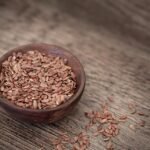[ad_1]
Athletic performance isn’t just about training hard—it’s also about recovering smart. Without proper recovery, even the most dedicated athletes risk burnout, injury, and diminished results. A holistic approach to recovery, including hydration, sleep, nutrition, and active recovery, can enhance performance, reduce fatigue, and promote long-term health.
1. Hydration: The Foundation of Recovery
Dehydration impairs muscle function, delays recovery, and reduces endurance. Athletes lose fluids and electrolytes through sweat, making proper hydration critical.
Hydration Tips:
- Drink Before, During, and After Exercise – Aim for 16-20 oz of water 2-3 hours before training and 7-10 oz every 10-20 minutes during exercise.
- Replenish Electrolytes – Sodium, potassium, and magnesium help restore balance after intense workouts. Coconut water or sports drinks can help.
- Monitor Urine Color – Pale yellow indicates proper hydration; dark urine suggests dehydration.
2. Sleep: The Ultimate Recovery Tool
Sleep is when the body repairs muscle tissue, consolidates memory (including motor skills), and regulates hormones like growth hormone and cortisol. Poor sleep slows recovery and increases injury risk.
Sleep Optimization Strategies:
- Prioritize 7-9 Hours – Elite athletes may need up to 10 hours for optimal recovery.
- Maintain a Consistent Sleep Schedule – Going to bed and waking up at the same time improves sleep quality.
- Create a Sleep-Friendly Environment – Keep the room cool, dark, and quiet. Avoid screens before bedtime.
- Nap Strategically – Short 20-30 minute naps can boost recovery without disrupting nighttime sleep.
3. Nutrition: Fuel for Repair & Growth
Post-workout nutrition replenishes glycogen stores and aids muscle repair. A mix of protein and carbohydrates within 30-60 minutes after exercise enhances recovery.
Key Nutritional Strategies:
- Protein for Muscle Repair – 20-40g of high-quality protein (chicken, eggs, whey, plant-based options).
- Carbs for Glycogen Replenishment – Sweet potatoes, rice, quinoa, or fruit restore energy.
- Anti-Inflammatory Foods – Berries, fatty fish (omega-3s), turmeric, and leafy greens reduce muscle soreness.
4. Active Recovery & Mobility Work
Light movement enhances blood flow, reducing stiffness and soreness.
Effective Active Recovery Methods:
- Low-Intensity Cardio – Walking, swimming, or cycling at 50-60% max heart rate.
- Foam Rolling & Stretching – Improves flexibility and reduces muscle tightness.
- Yoga or Mobility Drills – Enhances joint health and recovery.
5. Mindfulness & Stress Management
Chronic stress raises cortisol levels, hindering recovery.
Stress-Reduction Techniques:
- Meditation & Deep Breathing – Lowers cortisol and improves mental clarity.
- Cold Exposure (Ice Baths, Cold Showers) – Reduces inflammation and muscle soreness.
- Massage Therapy – Enhances circulation and relaxation.
Conclusion
Optimal athletic performance requires more than just training—it demands smart recovery. By prioritizing hydration, sleep, nutrition, active recovery, and stress management, athletes can maximize gains, prevent injuries, and sustain long-term success. Recovery isn’t optional—it’s essential.
How do you recover after intense training? Share your favorite techniques in the comments!
Would you like any adjustments or additional sections?
[ad_2]





